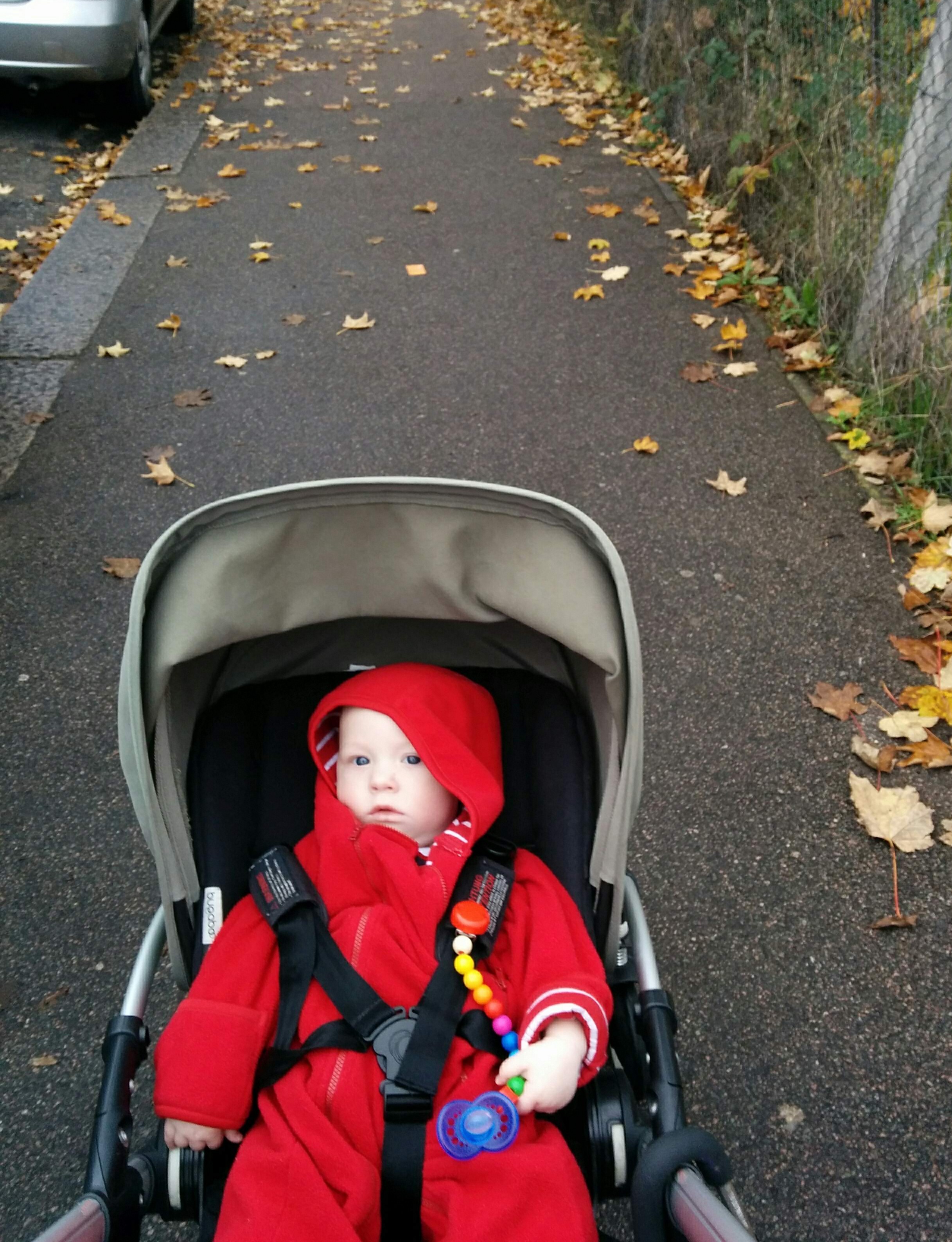Birdie has been a study in flexibility. Right from the start, his difficulty with breastfeeding meant that I had to re-evaluate some of my most closely held beliefs about mothering, and about myself as a mother. Being unable to babywear for long periods (thanks to a prolapse, which isn’t something I talk about much, but probably should since something like 50% of women experience prolapse to some degree after birth) has also been a real challenge to my image of myself as a mother.
Although my approach to parenting and education is informed somewhat by Charlotte Mason and to a lesser degree by Steiner philosophies, I’m a Montessorian at heart and always have been. I love the focus on dignity and independence, the beautiful materials, the order of presenting work that leads from one skill to another. After reading more about Magda Gerber’s ideas, I feel even more strongly that children should have as much freedom of movement as possible. No contraptions, no ‘containers’ (although I am very thankful for the bouncer chair that Birdie uses from time to time which keeps him from being squished by running big brother feet), no propping up, no rushing. And of course, a little low bed for our independent baby - the ‘most important part’ of a Montessori baby’s room.
We tried, and failed, with the floor bed.
I really wanted it to work for us. And it might in the future - I’m not writing it off completely. But after trying a mattress on the floor and a low 3 sided cotbed, I’ve had to be flexible yet again and bridge the space between ideals and what’s actually practical in our family at the moment. Without a bit of security overnight (in the form of a cot), Birdie can easily crawl down the hall or get stuck under a wardrobe. It’s not practical in our home to have Birdie in his own room - there’s no room available for him - and we wouldn’t choose to have such a small person sleeping alone in a room even if there was space. The floor bed is a beautiful way to give a very small child independence in their sleep setting, but it’s one piece of the puzzle, and isn’t realistic for many families who live in small homes, or who choose to bedshare or roomshare.
Calling time on the floor bed has pulled me back a bit from thinking too much about what other families do - especially families who may be ‘more Montessori’, something that it’s easy for me to beat myself up about. I am trying to noticing the impulse to compare when it arises, and to be more conscious of how those impulses are directing my choices, or my beliefs about my mothering and our family. When I worry that I’m not exposing A to all of the traditional materials - especially that I’m not presenting him with enough math works - is the root worry that others will think I’ve read less educational theory, considered less what kind of childhood he will have, tried less hard to be a good mother? Am I worried that somehow down the line, he won’t measure up? That I won’t measure up?
It’s a risk, I think, of an intentional approach to parenting - holding yourself so firmly to an ideal that you don’t give yourself the grace to adapt, to see your own imperfect family as the model rather than all the other families who you assume are doing it better, with quieter and more focused children. It’s hard to sidestep that internal pressure to be/do/live in precisely the way you have imagined you would. Truthfully, I’m happy to have a bit more flexibility and to borrow from different approaches and schools of thought to craft something that works for our family. I never thought that we would be cot-users, or bottle users, or daily pushchair users, but adapting to these ‘failures’ or gaps between our imagined life and our real life has given me the gift of space to change my mind and find ways of doing things that suit my real, imperfect, wonderful family.



